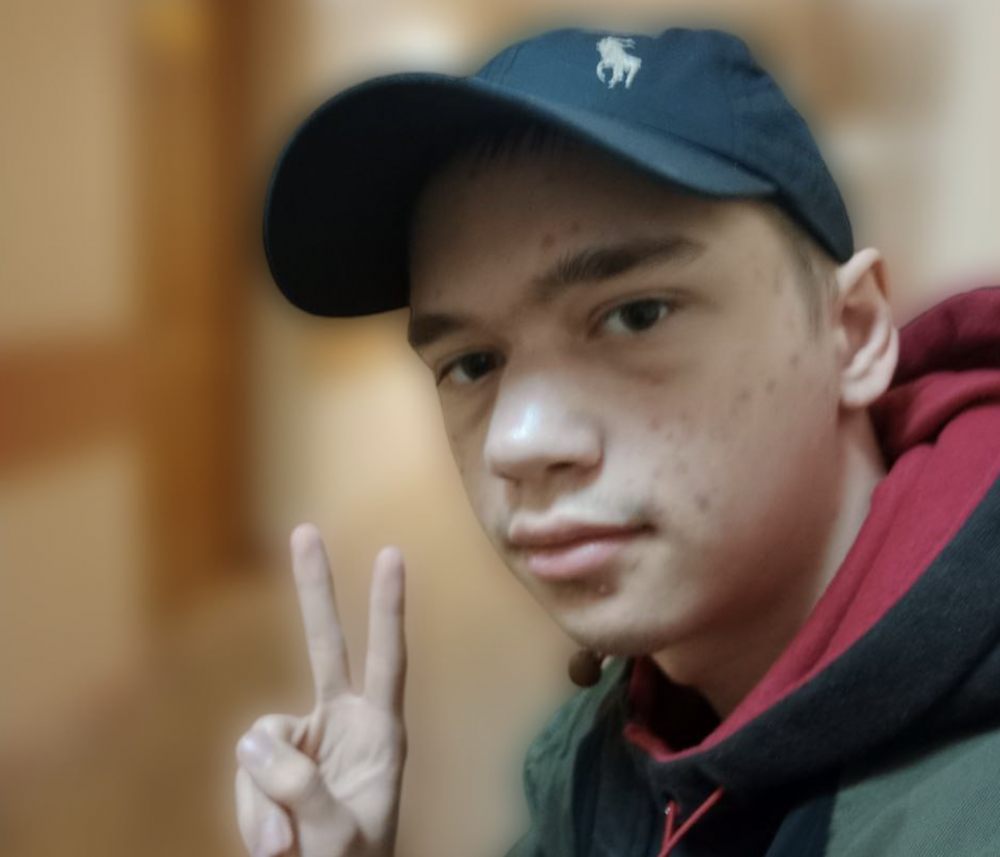
“They deceived my child.” The story about Mikhail Avdonin who was detained following a possible FSB setup
ADVERTISEMENT
“Mikhailo was a good, albeit introvert, child. He sat at the computer a lot, developed games, studied circuit diagrams, and was interested in computer science. In general, he was an ordinary child. He finished secondary school, but never got a chance to go to college,” Tatyana, the mother of the arrested Mikhail Avdonin, told the Barents Observer.
On September 23, 2023, eighteen-year-old Mikhail went to a military base in Arkhangelsk, where, according to investigators, he was planning to commit a terrorist attack. However, FSB officers were waiting for the young man and detained him right at the site of the planned arson. Avdonin was later accused of having connections with the Freedom of Russia Legion, an organization of Russian citizens who fight on the side of Ukraine. This added a “preparation for treason” charge against him.

After his brutal detention, Mikhail was brought home for the house search after and then taken to a court hearing. The court sent the young man to a pre-trial detention center despite the fact that, according to his parents, the young man was beaten by FSB officers.
“When I arrived from work, I was met by two servicemen in civilian clothes, they told me that I could not go into my apartment. I said my son was there and asked what had happened. They only told me “treason.” They kept me before the door for a long time until Misha was brought in in handcuffs. It was a shock for us. The apartment was already sealed,” Tatyana said.
They beat him very badly,” Mikhail’s father added. “When they brought him in, his whole face was swollen, he couldn’t even drink tea, couldn’t swallow. Then they took him for a medical examination after he was beaten.”
The Barents Observer contacted the press service of the Freedom of Russia Legion to get information about their connections with the activist. They have not responded.
ADVERTISEMENT
Possible provocation and “FSB-connected lawyer”
There are several strange details in the Mikhail Avdonin case. On the day the young man allegedly tried to commit a terrorist attack, FSB officers were watching him. The Arkhangelsk news outlet 29.ru published photos taken by the security agents. And after the arrest, a video appeared where Avdonin reads the text with an apology from a sheet.
“Over the past year, most of the treason cases have been provocations,” says Evgeny Smirnov, a lawyer with Perviy Otdel (“First Department”), a human rights project providing legal support in treason, espionage and extremism cases. “I would say that most of those cases when a person is detained before they do something illegal, they are a provocation on the part of FSB officers. And I will not be surprised that everything was exactly like that in this case.”

Another strange thing in Avdonin’s case is the lawyer who forced the young man to confess to something he didn’t do.
“The first lawyer forced Mishenka to sign some paper, which said that he allegedly set fire to some bathhouses inside a military base. The lawyer told him: “Agree with this, your sentence will be reduced.” They totally framed my child. He was asked to sign for something he did not do. This lawyer appears to be working for the FSB, that’s all,” says Ruslan, Mikhail Avdonin’s father.
“Now the Russian authorities have started to classify many actions as treason,” says Evgeny Smirnov. “You don’t have to sell some secrets of your homeland to face that charge. Nowadays it’s enough to transfer a few hundred rubles to a foreign account, talk to a family member who’s abroad or correspond with someone on a Telegram channel. Such cases are serious career advancement for security officers. Secondly, their superiors are probably putting pressure on them to look for “spies.”
“It’s difficult for the FSB to capture those people who actually commit some actions in the interests of a foreign state. The easiest way is to make a provocation. It’s easy and simple: write to a person, gain their trust, introduce yourself as a representative of some foreign organization, and then include in the exchange all those things that are necessary to initiate a criminal case. Then you ask the person to come at a certain time to a certain place and detain them there. That is a complete win for FSB officers: the terrorist attack did not take place, it was prevented, their career advances and there’s something to report to the superiors. Everyone’s made it except the poor person.”
After the start of the war in Ukraine, the number of FSB-initiated criminal cases on charges of terrorism, treason and espionage increased significantly. Journalists from Sibir Realii found that at least 148 people were charged with treason, espionage or secret cooperation with foreigners in Russia in 2023. They also noted that some cases were opened after provocations arranged by FSB officers.
One of the most high-profile cases initiated after the provocation of the Russian special services was the case of Valeria Zotova from Yaroslavl. In February 2022, 19-year-old Valeria Zotova began talking to other people in anti-war chat rooms. There she met a man who introduced himself as an officer of the Ukrainian Security Service. He offered her money to set fire to a building where they were collecting aid for the Russian military in Ukraine. Zotova initially agreed, but then changed her mind and decided to stage an arson attempt. She shared her plans with a friend who turned out to be an FSB agent. Last February, Valeria went with her “friend” to the administration building to stage an arson but was detained by FSB officers right in the car before she even got there. In the end, the girl got six years in prison for attempted arson. Memorial recognized Valeria Zotova as a political prisoner.
ADVERTISEMENT
The Barents Observer Newsletter
After confirming you're a real person, you can write your email below and we include you to the subscription list.



